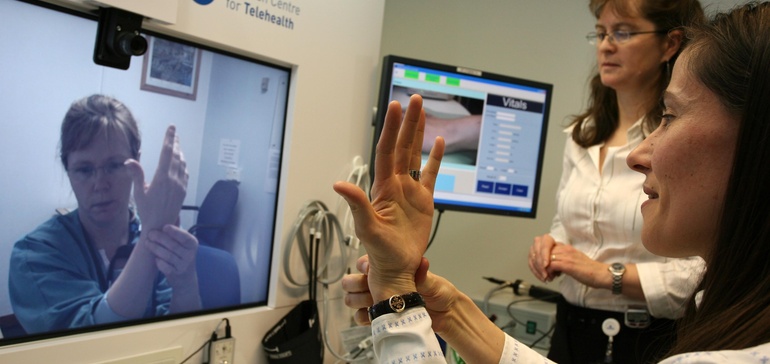
Dive Brief:
- Telehealth and remote monitoring are becoming significant forces in healthcare delivery, according to a new survey of 1,300 primary care and specialty physicians released Thursday by the American Medical Association.
- The number of physicians who use telehealth for visiting with patients has doubled between 2016 and 2019, although the overall number remains relatively low with 28% of surveyed physicians reporting they have adopted telehealth technology. Remote patient monitoring has also grown, from just 13% of physicians using it in 2016 to 22% in 2019.
- The use of clinical decision support within EHRs, the promotion of patient engagement to treat chronic conditions and allowing patient access to clinical data has also grown, but at more modest rates.
Dive Insight:
Digital health is beginning to take off — particularly for primary care physicians — according to the new survey. It joins other research showing doctors and patients are excited about digital applications in healthcare, although some remain wary of putting them into use.
AMA found that 40% of PCPs in 2019 said they see digital health as providing them a definite advantage in their practice of medicine, up from 31% in 2016. However, specialists were less enthusiastic, with 33% saying they gain a definitive advantage, up from 31% in 2016.
The proportion of physicians using virtual patient visits doubled between 2016 and 2019. This adoption of virtual visits saw the biggest growth area compared to other digital health tools, according to the survey.
The use of remote monitoring in order to improve care grew from 13% of doctors to 22%. The use of clinical decision support in EHRs grew from 28% of doctors to 37%. Remote care and monitoring tools are those expected to see the highest rate of adoption in the coming years.
Half of all doctors said they plan to use virtual visits within three years while 53% say they plan to use remote monitoring in order to improve care within the next three years.
Of those doctors surveyed 68% say remote care is either very or somewhat important in terms of motivating them to undertake digital adoption.
Multi-specialty groups are the are the heaviest users of remote digital tools. There was also relatively higher usage of these tools among hospitals, primary care physicians and physicians under 50.
Conversely, concerns about legal liability has grown, as 85% of doctors say their digital health tools being covered by their malpractice insurance is either very or somewhat important.
Despite the fact that in most areas the use of digital health remains a plurality, the AMA remained bullish on the future growth of digital health applications.
“The rise of the digital-native physician will have a profound impact on healthcare and patient outcomes, and will place digital health technologies under pressure to perform according to higher expectations,” AMA Board Chair Jesse Ehrenfeld said in a statement.
